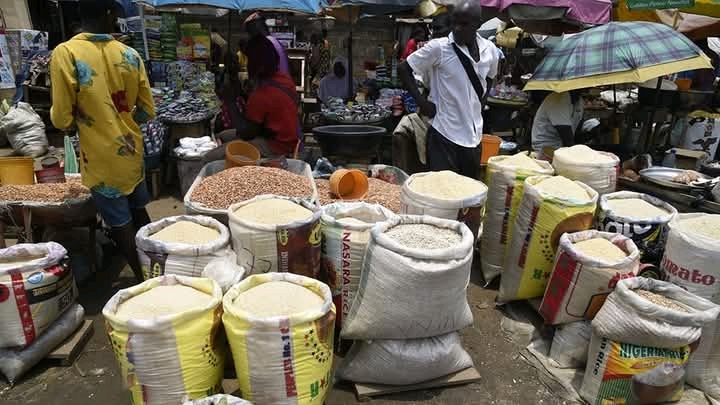This is even as the report raised the alarm about what it tagged targeted attacks on Nigerian states that produce food for the country.
Areport by a think thank, SBM Intelligence has shown that about 50% of minimum wage earners in Nigeria spend all their earnings on food.
This is even as the report raised the alarm about what it tagged targeted attacks on Nigerian states that produce food for the country.
The report lamented that climate change has led to increased food insecurity in the country, hereby encouraging malnutrition.Nigerian cultural tours
“The combined impact of climate change and insecurity leads to heightened food insecurity, particularly among vulnerable populations.”
“A nutritionist in Kano State observed, “We’re seeing a surge in child malnutrition. Many families eat just once a day.”
“The severe food production and supply chain disruptions directly contribute to increased malnutrition rates. The global reports indicate that the spread of conflict, alongside climate and economic stressors, is a primary driver pushing millions towards acute food insecurity.”
The SBM report also alleged that there was a deliberate targeting of Middle Belt states, which are the country’s food baskets.
“The deliberate targeting and systematic destruction of agricultural assets and land appropriation in Nigeria’s Middle Belt, the country’s primary “food basket,” creates a direct and severe feedback loop that extends far beyond regional food shortages.”
“This strategy not only cripples local crop production but also drives national food price inflation, exacerbates widespread food insecurity, and ultimately undermines the country’s economic stability. This highlights agriculture as a strategic vulnerability in the ongoing conflict,” it was noted.
The report further noted that food affordability has become a major problem in the country.
“Food Price Inflation and Affordability: Nigeria’s food security situation is increasingly precarious, with demand consistently outstripping supply.”
“Food inflation has become a significant concern, with the rate surging to 35.41% in January 2024.”
“This acute food insecurity is projected to increase in magnitude and severity. The human cost is evident in the alarming statistics: food-insecure Nigerians rose significantly from 66.2 million in the first quarter of 2023 to 100 million in the first quarter of 2024.”
“The plummeting agricultural output in the Middle Belt, Nigeria’s traditional “food basket,” directly exacerbates this inflation. The global context also plays a role, with the spread of conflict, climate, and economic stressors pushing millions worldwide to the brink of acute food insecurity,” the report read.
Previously, the President of the Nigerian Labour Congress (NLC), Joe Ajaero, lamented the impact of inflation on the ₦70,000 minimum wage approved by the Bola Tinubu-led government.
He had shared his thoughts while speaking at the quadrennial delegates’ conference of the Trade Union Congress (TUC) in Abuja.
While addressing attendees, Ajaero had stated that electricity tariffs and taxes far exceed the approved minimum wage.
“This is a period where the tax on your salaries is almost higher than the minimum wage increase on the salaries. It is a period we need to sit and reflect on our survival.”
“What are those things that affect us most? The social safety nets that are obtainable in some developed economies of the world, and we need to fight for them.”
He noted the pressing need to examine how the minimum wage is being implemented.
“Very important, the cost of living index. We need to look at it. How does it affect an average worker? How was the minimum wage the NLC, TUC, and others fought for implemented?”
He also lamented the rising cost of living throughout the country.
“The landlords and transporters have taken it all. The electricity tariff is more than our minimum wage, and the tariff on telecom is increasing by the day.
Find Verified News At Your fingertips Click The Button Below

